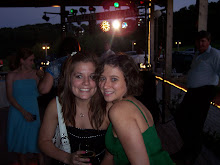As I said before in my previous post, I found many ideas from AWP that applied to composition studies. Another panel, "The Writer in the Community: Taking Creative Writing from the Campus to the People", discussed teaching creative writing outside of academia. One panelist worked in a retirement community, others worked in a rural community in a teen center, and another panelist worked with two inner city boys on writing novels. The interesting thing all panelists discussed was the resistance to revision. All the presenters said that once the students wrote, they were done with the piece. The participants in their programs all saw writing as a product rather than a process, something we encounter in composition classrooms all the time. Students don't see the point in revision. Once they are done, they are done with the essay.
Another problem that one of the panelists discussed was the distance between written language and language of talking. The panelist said the participants, both 17 year old boys, could describe the novels they were planning on writing in detail while talking about their ideas. When the time came to write the novels both boys had frustration and difficulty expressing their ideas in written form.
I've had the same problem with many of my composition students. Especially, when it comes to discussing complex issues surrounding the research argument, they can talk all day long about it. When it comes to writing they experience frustration. Students don't understand that the language we speak with and the language we write with are the same. They see them as two very different languages.
Going along with my other post, I think this is just contributing evidence that all writing is equal. No teaching of writing should be considered "better" than another kind of writing. If all teachers of any kind of writing are experiencing the same problems, shouldn't that mean that we should all come together to figure out how to solve these problems? Doesn't all forms of writing look for the same basic characteristics: clarity, word usage, structure, cohesiveness, etc? You could apply those chartacteristics to poetry, fiction, and yes, even composition. All writing in some form or another is also creative.
Tuesday, February 24, 2009
Monday, February 16, 2009
AWP
I just returned from the AWP conference in Chicago. Though this conference is directed at creative writers I found many particular things that interested me as a teacher of composition.
Firstly, at the panel discussion, "But That's Not Creative! Mentoring Creative Writers About Research, Teaching, and Service" one member of the panel called teaching composition classes both "soul crushing" and like "paying your dues" in response to an audience member's question. The question was how to gain experience teaching creative writing classes when the only classes available to graduate assistants were composition.
I would like to repudiate this statement with an anecdotal response. As an undergraduate student I was a creative writer; as a master's student I am in the literature track. I currently teach composition. After graduation, I hope to find a job at a community college where I'm sure my teaching load will focus more on composition classes and less on teaching literature. I personally think I am very fortunate to be in such a position. I don't just teach English majors; I teach students from every possible major and background. It's like Ken Gillam says, "Why do teachers only want good writers? If all we had were good writers we wouldn't have a job."
Tuesday, February 3, 2009
Possible Wiki-Book Additions
I have my wiki-book additions narrowed down to two ideas. As you all know, I have an interest in using literature in the composition classroom, but I'm not exactly sure how I would relate that to a student audience. If anyone has any awesome ideas about this let me know.
The second idea I have is a section on choosing a topic. From my limited experience, many students have difficulty with this. After a discussion in 603 today, many GAs said that it was the part their students hated the most and struggled with. What makes a good topic to write a research paper or rhetorical analysis about? Why do students pick the topics they do? We're starting the research paper on Thursday and I'm going to have them do a freewrite about why they picked the topic they did, mainly because I'm curious. Just something I've been thinking about lately.
The second idea I have is a section on choosing a topic. From my limited experience, many students have difficulty with this. After a discussion in 603 today, many GAs said that it was the part their students hated the most and struggled with. What makes a good topic to write a research paper or rhetorical analysis about? Why do students pick the topics they do? We're starting the research paper on Thursday and I'm going to have them do a freewrite about why they picked the topic they did, mainly because I'm curious. Just something I've been thinking about lately.
Subscribe to:
Comments (Atom)
